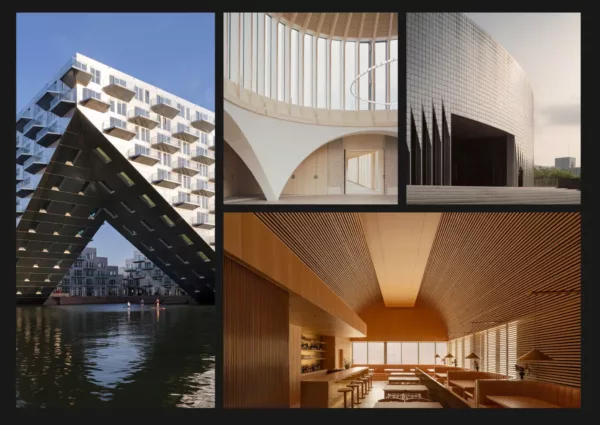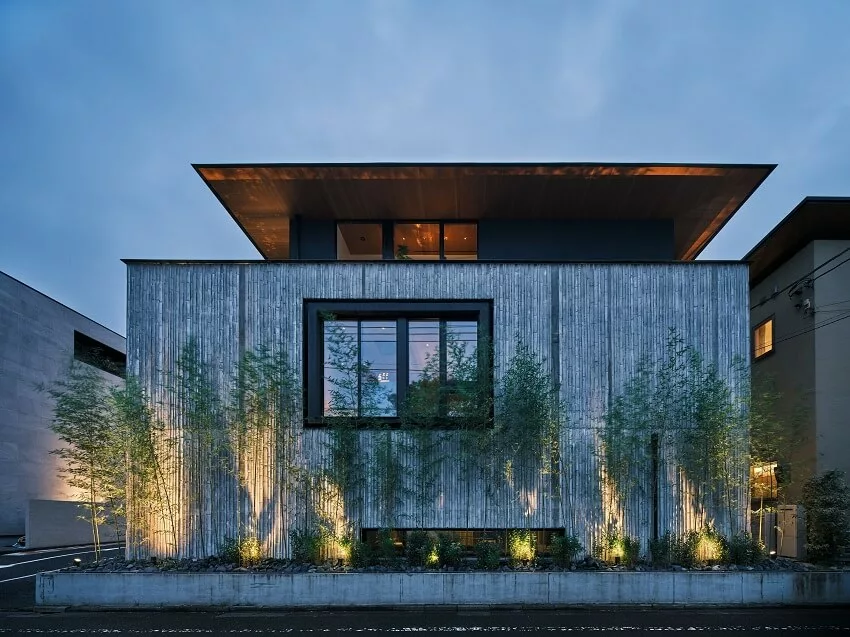
Discovering the 11 Best Architecture Firms in Japan and Their Groundbreaking Work
February 15, 2024Architecture firms in Japan stand at the forefront of blending ancient traditions with modern design sensibilities. This exploration into the 11 best of these firms, all winners of the Architecture MasterPrize (AMP), showcases their groundbreaking work that represents contemporary architecture in Japan.
Global Appeal of Japanese Architectural Design
Japanese architecture’s global appeal lies in its unique combination of minimalism, harmony with nature, and thoughtful space use.
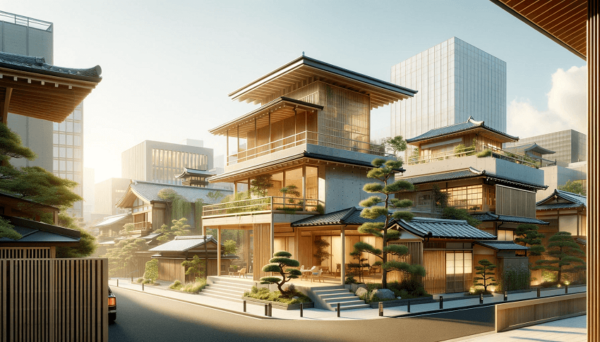
Nihon Kenchiku: The Essence of Japanese Architecture
“Nihon Kenchiku”, the traditional Japanese architectural style, has profoundly influenced modern Japanese architecture. Its minimalist aesthetics, natural integration, and harmonious balance form the core of contemporary architecture in Japan.
Key Characteristics of Japanese Architecture
Japanese architecture is defined by three primary characteristics:
1. Harmony with Nature: Emphasizing the connection between the built and natural environment.
2. Minimalism: Focusing on simplicity and the elimination of unnecessary elements.
3. Flexibility and Adaptability: Creating multipurpose spaces reflecting life’s fleeting nature.
Showcasing Japan’s Architectural Excellence : 11 Top Architecture Firms in Japan
Tetsuo Kobori Architects + Daiwa House Industry Co. + Fujita Corporation
- Project: MORI NO KAISHO / MEETING PLACE OF FOREST
- Location: Nara, Japan
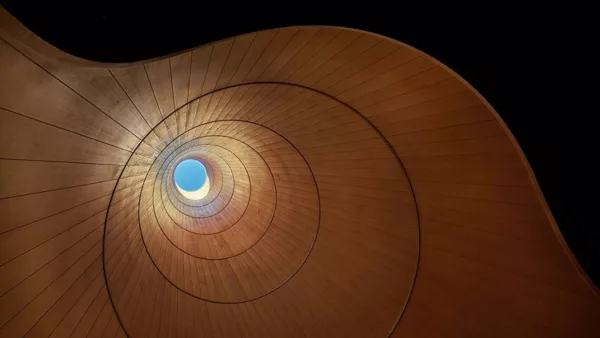
MORI NO KAISHO
An organic, earth-inspired design featuring local wood and natural light, fostering ancient cross-role communication with modern eco-technology.
Aisaka Architects’ Atelier
- Project: BUILDING OF MUSIC
- Location: Tokyo, Japan
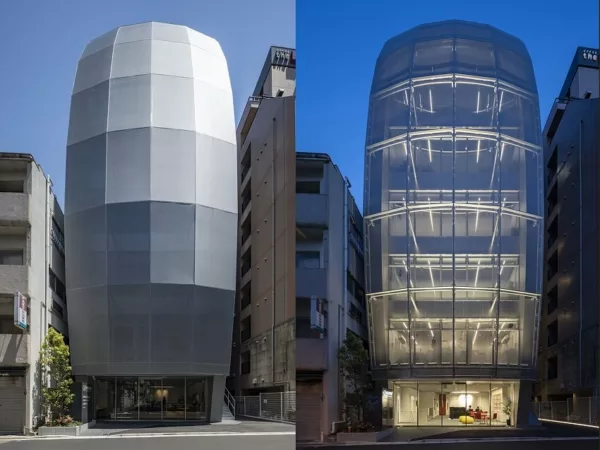
BUILDING OF MUSIC
A music-themed building with a speaker-like façade, integrating architecture and music through controlled sunlight and sound.
Nishijama
- Project: CURA GINZA OFFICE PROJECT
- Location: Ginza, Japan
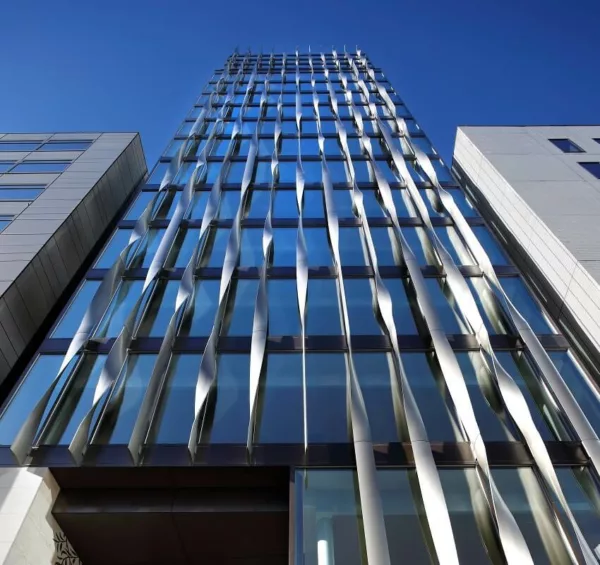
CURA GINZA OFFICE PROJECT
A joint office-shopping complex near Kabukiza, combining “Aqueducts” and “Willows” in its design, blending with Ginza’s traditional scenery.
CUBO design architect
- Project: C4L
- Location: Japan
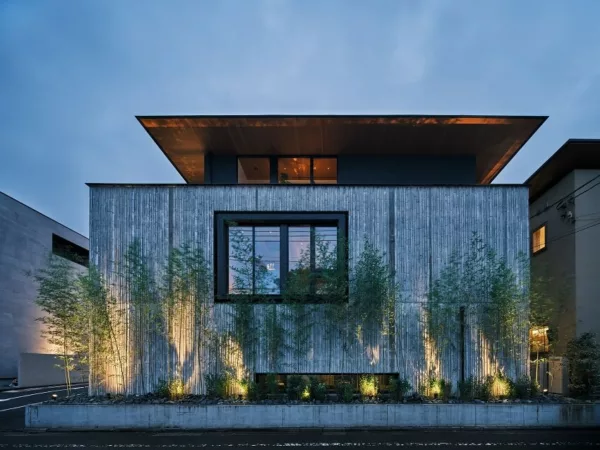
C4L
Inspired by traditional homes, focusing on natural materials and handcrafted furnishings to create restful environments with a modern twist.
JAKUETS Inc.
- Project: IWASAKI NURSERY SCHOOL
- Location: Chiba, Japan

IWASAKI NURSERY SCHOOL
A kindergarten space designed for continuous play and communication, with various interactive spaces fostering human interaction.
Shotaro Takahashi + Associates
- Project: HANARE-I
- Location: Shimane, Japan
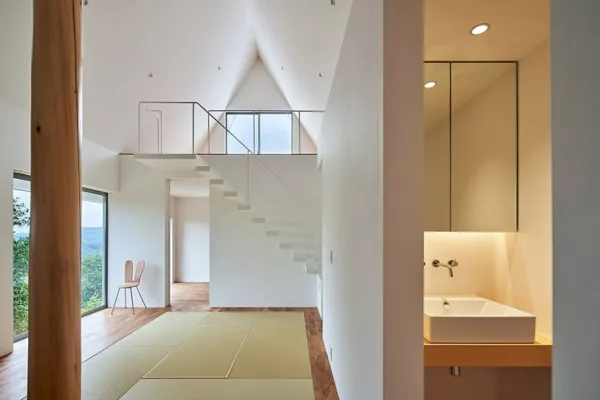
HANARE-I
A residence offering spectacular views, integrating natural landscapes into its design and respecting traditional forms with modern elements.
Ido, Kenji Architectural Studio
- Project: HOUSE IN OTA
- Location: Wakayama, Japan
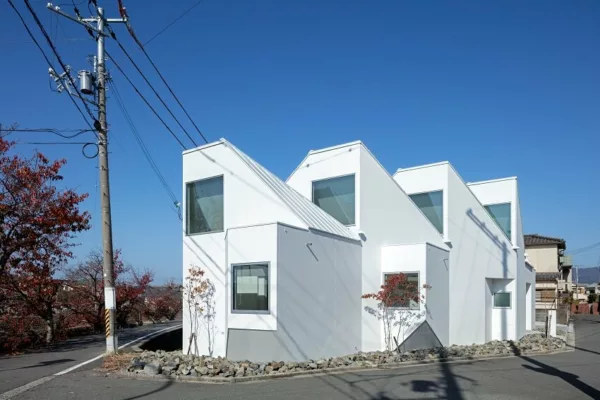
HOUSE IN OTA
A wooden single-story house with a unique sawtooth-shaped roof, creating sculptural spaces filled with natural light and minimalistic design.
GENETO Architect’s
- Project: KANOLLY RESORTS
- Location: Nagano, Japan
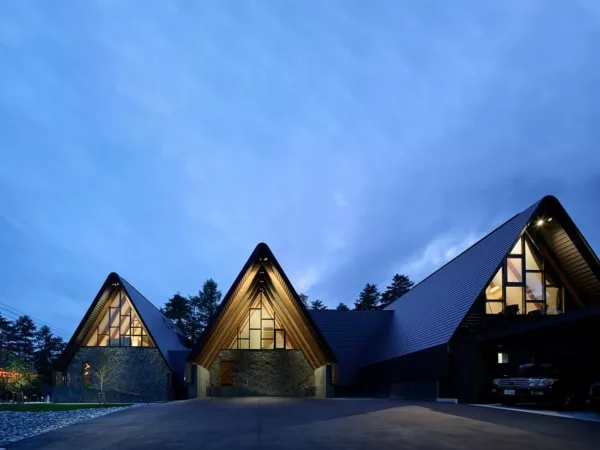
KANOLLY RESORTS
A hotel designed to let guests enjoy Hakuba’s natural beauty, embodying Japanese wabi-sabi and integrating with natural surroundings.
Ryuichi Sasaki Architecture, Kiz Architects with Escenario, Shukou Kenetsu
- Project: CUADRO NAKANO NORTH
- Location: Tokyo, Japan
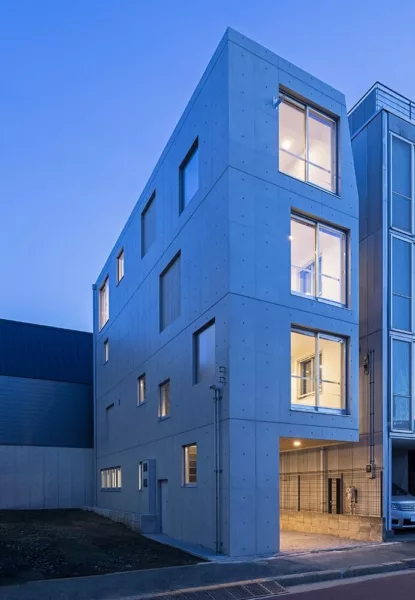
CUADRO NAKANO NORTH
A residential complex in Tokyo’s dense urban area focusing on natural energy and comfort, maximizing space with smart design choices.
intoRAW
- Project: SATOYAMA SATELLITE OFFICE
- Location: Gifu, Japan
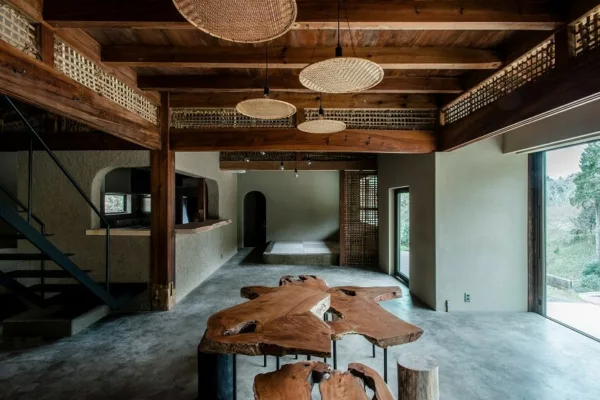
SATOYAMA SATELLITE OFFICE
Revitalizing an area influenced by Satoyama culture, emphasizing harmonious coexistence between humans and nature using local materials.
Ateliers Takahito Sekiguchi
- Project: HAIR ROOM TOARU
- Location: Saitama, Japan
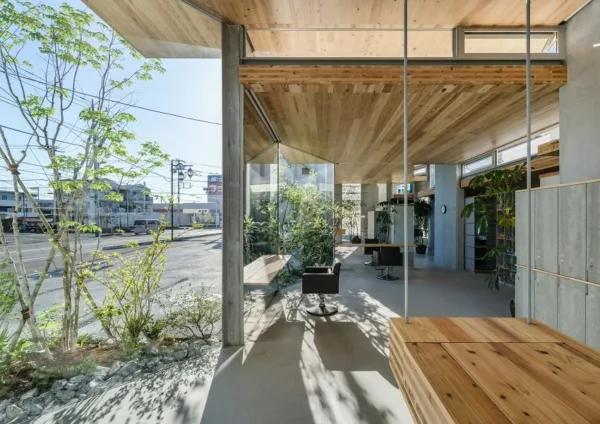
HAIR ROOM TOARU
A hair salon in a rural area using small active elements like mirrors and wooden counters, creating a dynamic space blending past and present.
A Journey Through Japan’s Architectural Innovation
In conclusion, these 11 Japanese architecture firms show excelent examples of how to merge traditional Japanese architectural principles with modern innovation. Their projects, celebrated and recognized globally, offer a glimpse into the future of architecture, where tradition and modernity coexist in harmony. Their innovative designs and thoughtful utilization of space serve as a testament to the enduring impact and versatility of Japanese architecture.
